The Ultimate Guide to Vegan Nutrition
Take care of your body. It’s the only place you have to live.
 Jim Rohn
Jim Rohn
The vegan diet. It’s simple right? Only plant foods, no animal products… What could go wrong?
The truth is, it’s not quite that simple. It might be easy to be a vegan. But it requires more effort to be a healthy vegan – just as it requires effort to be healthy with any kind of diet.
There are many essential elements of nutrition that we all need to keep in mind when on the plant-based path, and we’ve outlined them here for you.
Transitioning To A Vegan Diet
Just getting into veganism? Here are a few quick tips to make your transition to veganism a successful one.
- Do your own research. Keep in mind that not all recommendations work for all people. We all require different amounts of nutrients and a lifestyle that works specifically for us.
- Establish a support network. Meet other vegans at meet-ups or online forums and find a day to go eat together.
- Use a mobile app. Using an app like HappyCow or Vanilla Bean can easily introduce you to new vegan restaurant options in your town!
- Shop smart. When at the grocery store, place a focus on shopping the outer edges of the store. This is where you’ll find the fresh foods … most of the processed foods are kept in the aisles.
- Do your due diligence ahead of time. Calling or researching a restaurant before visiting will give you a great idea of the items they offer. You might find vegan meals hiding within the menus of unsuspecting restaurants (Buffalo Wild Wings, Wendy’s, and more)!
See our Ultimate Guide to Going Vegan for more tips, benefits, and case studies of the vegan diet.
Macronutrients
Macronutrients are the types of food that make up the categories of the diet: proteins, carbohydrates, and fats.
Protein
The main task of protein is to build and recover muscles and tissue throughout the body. Think of protein as the building material for muscle.
10 high-quality vegan sources of protein:
|
Leafy greens (spinach, kale) |
Nut milk (almond, flax, or soy) |
|
Hemp seeds |
Almond or peanut butter |
|
Beans |
Lentils |
|
Chickpeas |
Oatmeal |
|
Nuts (walnuts, brazil nuts, almonds) |
Tempeh |
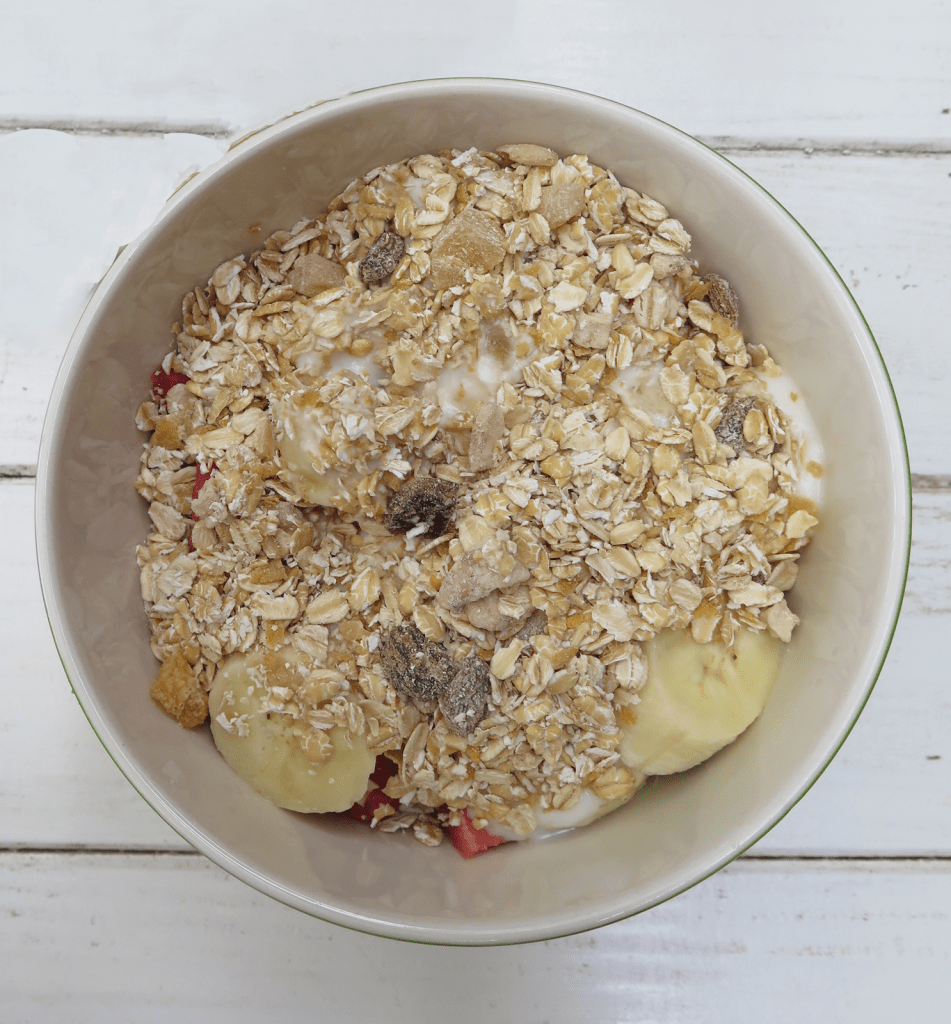
As important as protein is, we want to make sure we don’t over consume. As demonstrated in this article by Physicians Committee for Responsible Medicine, the overconsumption of protein is linked to osteoporosis, kidney disease, some cancers, and more.
The USDA recommends 46 grams of protein for women and 56 grams for men each day.
And good news, vegans: plant protein is naturally healthier than that from an animal, due to the saturated fat, cholesterol, and possible hormones and antibiotics present in animal protein.
Carbohydrates
Carbohydrates, or carbs, play an essential role in the body’s energy production. In fact, they’re the main component!
Carbs are the sugars, starches, and fibers in the foods we eat, and they break down into glucose (sugar) to provide the fuel necessary for our brain and nervous system.
Many fruits, vegetables, and grains are great sources of carbs. Have a look at our Guide to Effective Vegan Bodybuilding to learn about the different types of carbs and how you can best use them to build your body.
10 high-quality vegan sources of carbohydrates:
-
100% whole grain bread
-
Bananas
-
Berries (blackberries, blueberries, strawberries)
-
Brown rice
-
Beans (black beans, kidney beans)
-
Legumes (peas, chickpeas, lentils)
-
Sweet potatoes
-
Oatmeal
-
Quinoa or amaranth
-
Plain soy/coconut/almond/cashew yogurt
Fats
Contrary to the perception of many people, it’s possible to consume fat in a healthy way. And eating healthy fats offers benefits we can’t find elsewhere!
For example, healthy fats play a major role in storing energy reserves for our bodies, as well as increase the absorption of vitamins.
In order to be effective, it’s important that we get the right types of fat.
Healthy fats and unhealthy fats
Unsaturated fats are double-bonded, allowing them not to bend, flow, and move freely through the blood vessels.
Saturated fats are those that have no double-bonds. That is, it’s much easier for them to bond together and clog up the body’s arteries.
For these reasons, the type we want to try to consume is unsaturated fats. You’ll see on choosemyplate.gov that eating a diet with more unsaturated fat than saturated fat and trans fat can reduce the risk of heart disease and improve good cholesterol in the body.
15 high-quality vegan sources of healthy fat:
- Walnuts
- Flax seeds
- Pumpkin seeds
- Hemp seeds
- Avocados
- Almonds
- Chia seeds
- Olives (Whole, not olive oil)
- Cacao nibs (or cacao powder)
- Cashews
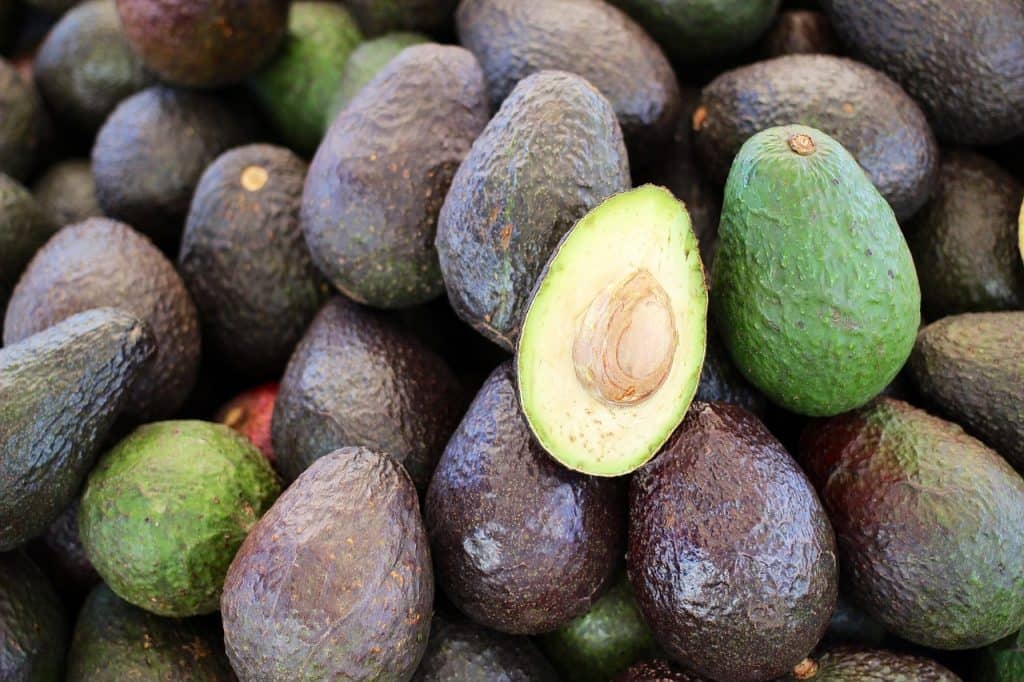
Micronutrients
Let thy food be thy medicine and thy medicine be thy food.Hippocrates
Macronutrients are broken down into micronutrients, the vitamins and minerals present in our food. Though small, micronutrients play a huge part in regulating and optimizing the processes of our body.
Vitamins
Vitamins help our cells absorb energy by metabolizing (breaking down) the food we eat.
What are vitamins?
Vitamins are made by plants and animals. They’re essential to our body’s growth, well-being, and day-to-day function, and humans must get them from food.
Here’s a list of the vitamins, how they help the body, and some vegan foods in which you can find them.
Vitamin A
Vitamin A helps boost our vision and maintain healthy bones.
Find Vitamin A in:
-
Carrots
-
Pumpkin
-
Dark leafy greens (spinach, kale, broccoli)
B Vitamins
B vitamins help the body release energy from the food we consume and help build amino acids and help maintain healthy hair, skin, and nails.
Find B vitamins in:
-
Beans
-
Whole grains
-
Nutritional yeast
B12: As one of the most important vitamins on this list, B12 is one that’s simply not plentiful enough in the plant-based diet. This is one for which you’ll likely need a supplement.
B12 plays some incredible import “behind-the-scenes” roles in the body, including red blood cell regulation, stabilizing neurological issues, stomach health, and energy production.
For more information and a list of frequently asked questions about B12, see our Supplements section below.
Vitamin C
Vitamin C is great for protecting the immune system and creating collagen in the body, improving bone, tendon, and ligament repair.
Find Vitamin C in:
-
Many fruits (kiwi, oranges, pineapple)
-
Many vegetables (bell peppers, broccoli)
-
Leafy greens (spinach, kale)
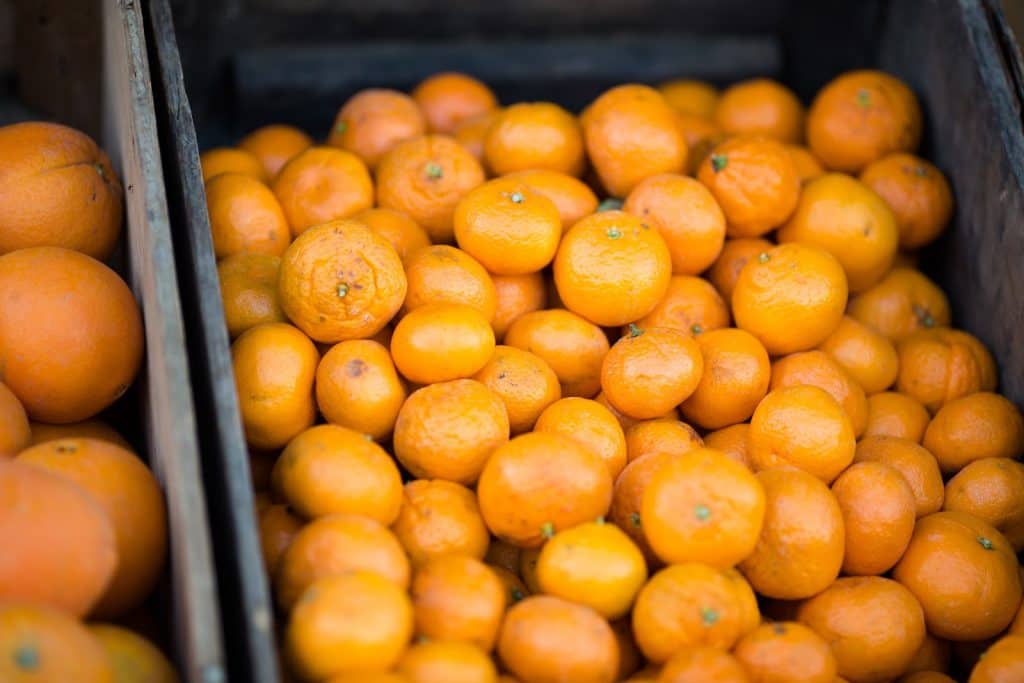
Vitamin D
Vitamin D is excellent for calcium absorption and building healthy bones. It’s best and most easily consumed from sunshine, but can be derived from several foods as well.
Find Vitamin D in:
-
Mushrooms
-
Fortified almond milk
-
The sun!
Vitamin E
Vitamin E is known for repairing damaged skin and hair and is great for balancing bodily functions – menstruation, aging, and cholesterol.
Find Vitamin E in:
-
Sunflower seeds
-
Nuts (almonds, hazelnuts)
-
Butternut squash
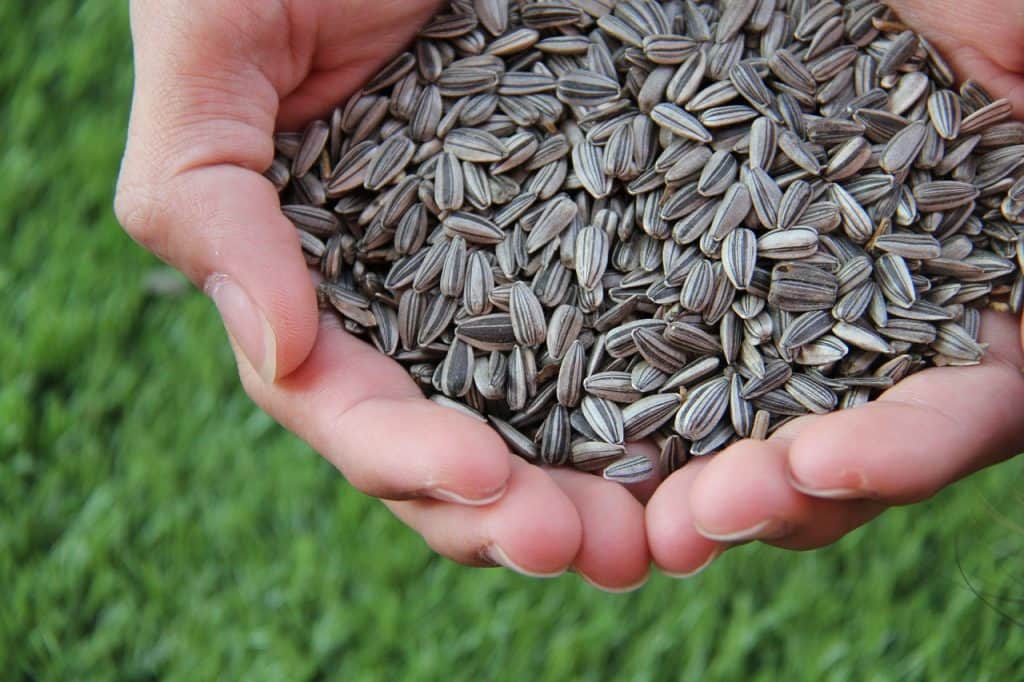
Learn more about Vitamin E in Dr. Axe’s focus article.
Vitamin K
Vitamin K works to prevent thin blood, transport calcium through the body and may help support strong bones.
Find Vitamin K in:
-
Vegetables: broccoli, asparagus, and spinach
-
Beans and soybeans
-
Blueberries
Learn more about Vitamin K on WebMD and OneGreenPlanet.
See HelpGuide.org for more in-depth information about the benefits of these essential vitamins.
Minerals
What are minerals and what do they do?
Minerals help make our body even better than it already is. They’re responsible for performing many different functions, listed below.
Calcium
Calcium is essential for bone and teeth health. It’s recommended we have between 1000 and 1300mg of calcium each day, dependent on age.
Here are some great ways to get your fill of calcium:
-
Collard greens, kale, and mustard greens
-
Black beans
-
Nut milks like almond, soy, and rice
Magnesium
Known as the “master mineral,” magnesium is widely used for a whole host of ailments.
Magnesium is needed for over 300 processes in the body. It’s truly what we call an essential mineral.
Studies show that 68% of Americans are magnesium deficient. The recommended amount we should have daily is at least 300mg, but the latest stidy found that 19% of Americans get less than half that amount.

Here are some of the causes of magnesium deficiency:
-
Pharmaceutical drugs
-
Excess alcohol without enough water
-
Existing conditions in the body (those affecting nutrient absorption and digestion)
-
Stress
Tip: Have a headache? Try a handful of almonds. The zinc and magnesium present in almonds will help relax blood vessels allowing you to relieve your pain.
Due magnesium’s ability to calm the nervous system, it’s commonly used to treat and prevent anxiety, nervousness, and restlessness.
Sodium
Sodium is exceptionally important in maintaining the balance of fluids within the body. It restricts fluid from entering and overloading the body’s cells.
In turn, it helps greatly with kidney health and the absorption of nutrients and medications.
Iron
Iron is one mineral to which you should pay especially close attention.
Iron plays an important part in energy production, as it boosts the transportation of oxygen around the body.In addition, iron is key in strength and immunity function. And if you don’t have enough of it, the body will let you know through fatigue and lethargy.
There are actually two types of iron: heme and non-heme. Heme comes from animals and non-heme is entirely plant-based. The body does a better job at absorbing heme iron, but that doesn’t mean it’s not plentiful in the vegan diet.
Here are three excellent vegan sources of iron:
-
Grains: quinoa, oatmeal, brown rice
-
Vegetables: collard greens, swiss chard
-
Nuts and seeds: pine nuts, cashews, pumpkin seeds
-
Legumes: lentils, soybeans, lima beans
Tip from NoMeatAthlete: the less iron you consume in one sitting, the better it’s absorbed into the body.
Zinc
Zinc plays a very important role in keeping the body healthy and safe from attackers. That is, it helps support the immune system and relax the nervous system.
Getting the proper amount of zinc in your diet helps fight illnesses and colds, balance your hormones, and supports the blood vessels.
This in-depth article from Optimal Living Dynamics illustrates just how important zinc is for managing anxiety.
Here are some of the best ways to get zinc into your diet:
-
Pumpkin seeds
-
Brazil nuts
-
Broccoli
-
Legumes
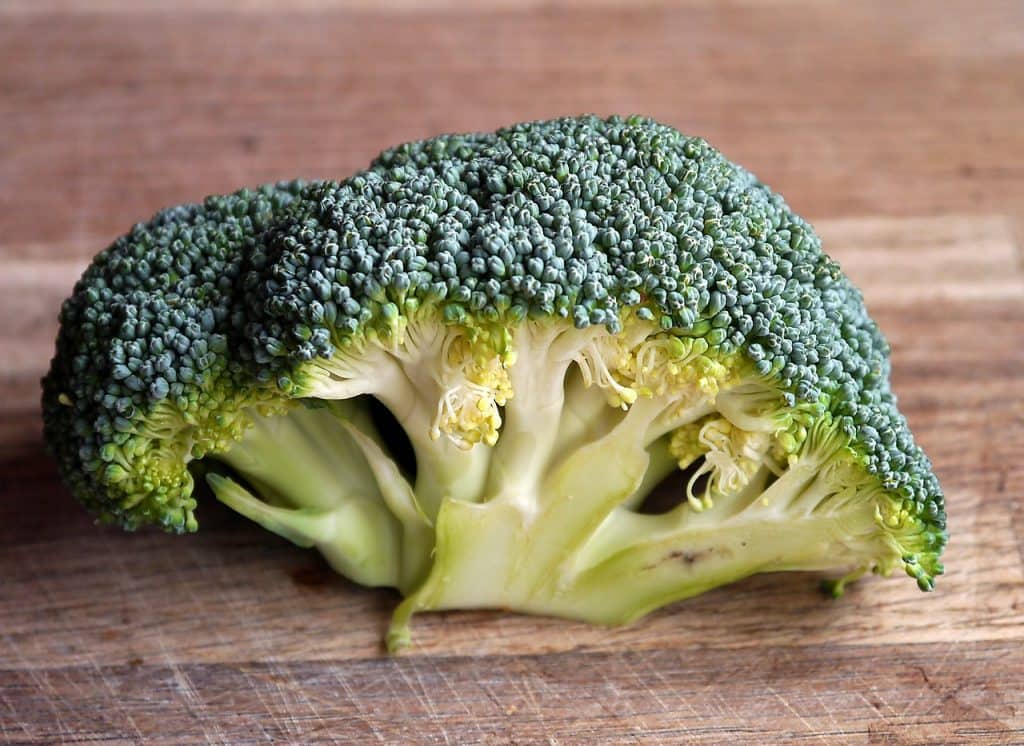
A zinc deficiency can result in loss of hair, lower immunity, and lower nutrient absorption. Make sure to get enough zinc in your diet because you don’t want to miss out on the benefits from all those delicious vegan foods!
Amino acids
What are amino acids?
As proteins are the building blocks of muscle, amino acids are the building blocks of protein. There are 20 amino acids, 11 of which can be manufactured within the body. The other nine, however, must be consumed through food sources. These nine amino acids are called essential amino acids.
Foods containing all nine essential amino acids are considered complete proteins, as the amino acid profile is complete.
Here are five of the best vegan sources of complete protein:
-
Chia seeds
-
Seitan
-
Quinoa
-
Soy (tip: the harder the soy, the higher the protein content)
-
Rice and beans together (they combine for a complete protein!)
A Note On Calories
You’ve heard the term calories, but what does that really mean? Calories are the units of energy that make up the food we consume.
For example, a medium-sized banana contains around 90 calories, while an entire avocado contains almost 230 calories. This simply means that we get more life-sustaining energy from the avocado than from the banana.
However, that doesn’t mean that all calories are the same. That’s where true nutrition comes in.The avocado mentioned above contains 230 calories, the same amount of calories in one bag of M&Ms candy. When deciding whether to eat one or the other, we need to ask the all-important question: what is eating this food going to do for my body? A similar question might be: how am I benefiting by eating this?
In this case, the avocado is providing far better nutrition than the M&Ms, including protein, carbs, and healthy fats!
Supplementation On A Vegan Diet
The goal of this article is to prepare you for a wholesome, nutritious vegan lifestyle.
We’ve gone over some foods necessary to get the proper nutrition on the vegan diet. Every person is different, and you might find you need more or less of a specific vitamin or mineral.
That’s where supplements come in.
B12 supplementation
Many vegans find they are low in vitamin B12. The recommended daily amount is 2.4 mcg (micrograms) – a small amount that makes a very big difference.
At very low amounts, deficiency in this vitamin can cause anemia and nervous system damage.
Like iron, B12 is best absorbed in small amounts. Vegan Society notes that you can take small amounts of B12 each day (10 mcg) or take a larger dose each week (around 2000 mcg).
B12 can be found in fortified foods, vitamins, and supplements that you consume orally or spray in your mouth.

Protein supplementation
While a well-balanced vegan diet should provide the proper amount to build your body and sustain your energy, protein is another supplement you may consider taking.
Taking protein powder to complement your already-nutritious diet is convenient, but there are a few things to watch for when selecting one:
-
Many protein powders use artificial ingredients
-
They’re notorious for being expensive
-
Some are heated to the point where the proteins are denatured (and benefits are lessened)
Here are three of our favorite clean, vegan protein powders that won’t break the bank:
Oil
Oils are known to contain lots of good, high-quality fatty acids.
There are oils available today, like olive oil and sunflower oil, that are perceived as more healthy to use for cooking.
But in a new study, doctors want to announce this loud and clear: coconut oil is not a health food. And this is not new information – it’s just a product of advertising that’s been circulated for some time.
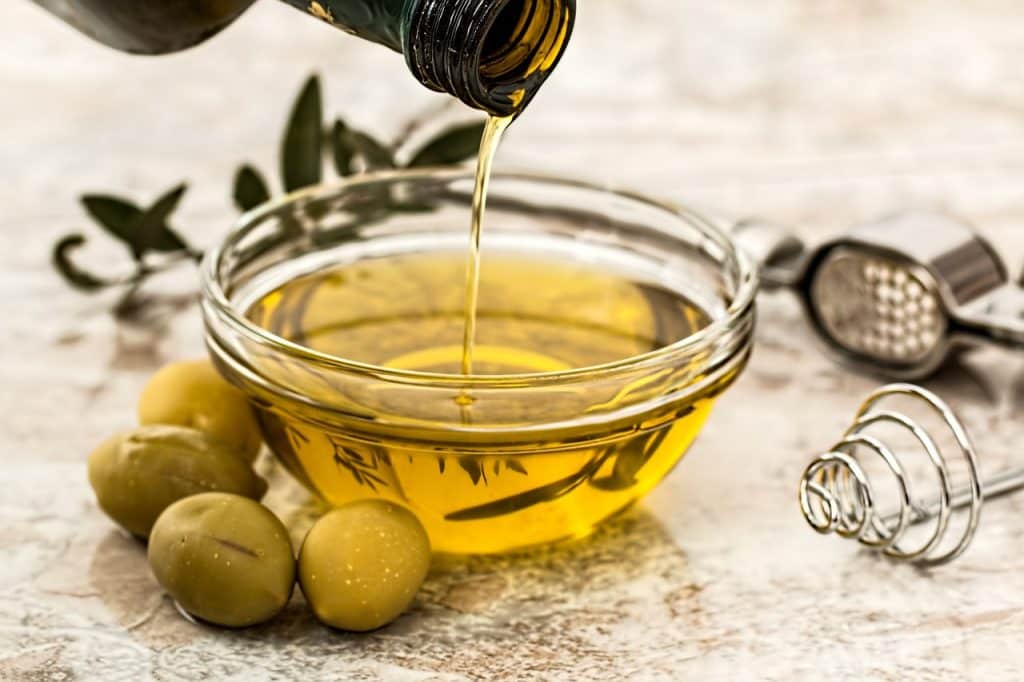
Processed oils (including coconut oil) have been found to raise LDL cholesterol and lead to heart disease. In fact, they’re just as harmful to your body as beef fat, palm oil, and butter.
However, the lauric acid present in coconut oil can have some positive effects. It helps boost the metabolism and doesn’t lose its nutrients at high temperatures.
All in all? Skip the oils: the best place to get fat is from natural food sources mentioned in the Healthy Fats section above.
Sugar
Society has become accustomed to blaming their weight gain and unhealthiness on fat. Because you eat fat, you get fat, right? Not really.
The problem isn’t fat. It’s sugar.
There are three main types of sugar:
-
Fructose: found naturally in fruit
-
Lactose: found naturally in dairy milk
-
Sucrose: found naturally in the sugarcane stems, but highly processed into table sugar
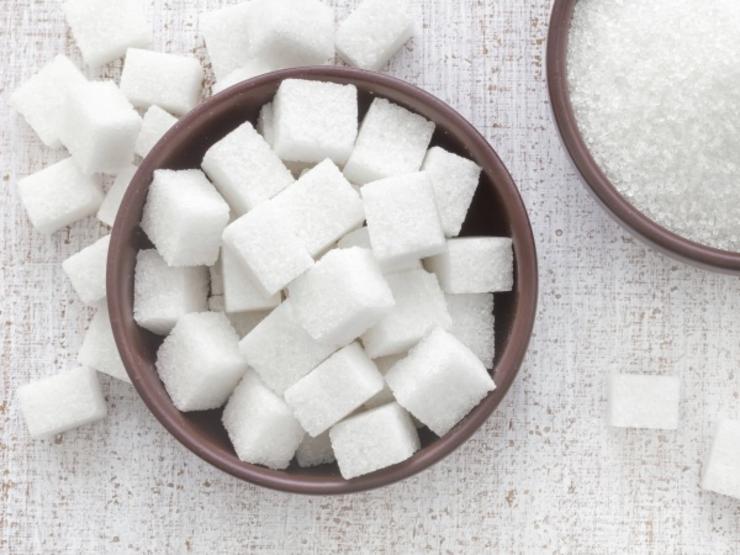
Sugar is a type of simple carbohydrate, meaning it gets absorbed quickly into the bloodstream. This rapid absorption will spike the blood sugar, leaving us feeling nervous, jittery, and hyperactive.
Get an overview of blood sugar and the Glycemic Index in Plant Power: How to Effectively Bodybuild as a Vegan.
Over longer periods of time, sugar can cause more serious issues and is known to lead to cardiovascular problems, obesity, kidney disease, diabetes, high blood pressure, and more.
With that said, sugar has a bad rap … and rightfully so. Here’s how it works in the body:
-
You consume a sugar-filled food
-
Your body releases insulin, a hormone that balances out the blood and allows you to use the sugar
-
Due to the ambush of sugar, the body sometimes often produces too much insulin, lowering the blood sugar below normal levels
-
This results in a sugar crash and our body says: …we need more sugar to get going!
Addictive and debilitating it is.
Our recommendation on sugar: consume only small amounts. The body can handle small amounts, but repeated use over a long time is what causes problems. Try to stick to fruit as your main source of sugar.
See this excellent overview on sugar by Nerd Fitness for more information: Everything You Need to Know About Sugar.
The Problem With Animal Nutrition
Meat
In 2015, the World Health Organization announced that processed meat directly causes cancer.
In addition to this groundbreaking announcement, they also declared red meat as a Probable Carcinogen. That is, one that has extremely strong evidence linked to cancer development.
In addition to the cancer risks, meat contributes to heart disease, weight gain, and lowers life expectancy.
Dairy
Over the past several decades, many misconceptions have been spread and believed about dairy.
While it’s full of vitamins, minerals, and other nutrients, not everyone thinks milk consumption is a good idea. Experts at Harvard University call our consumption of dairy milk “a step in the wrong direction.”
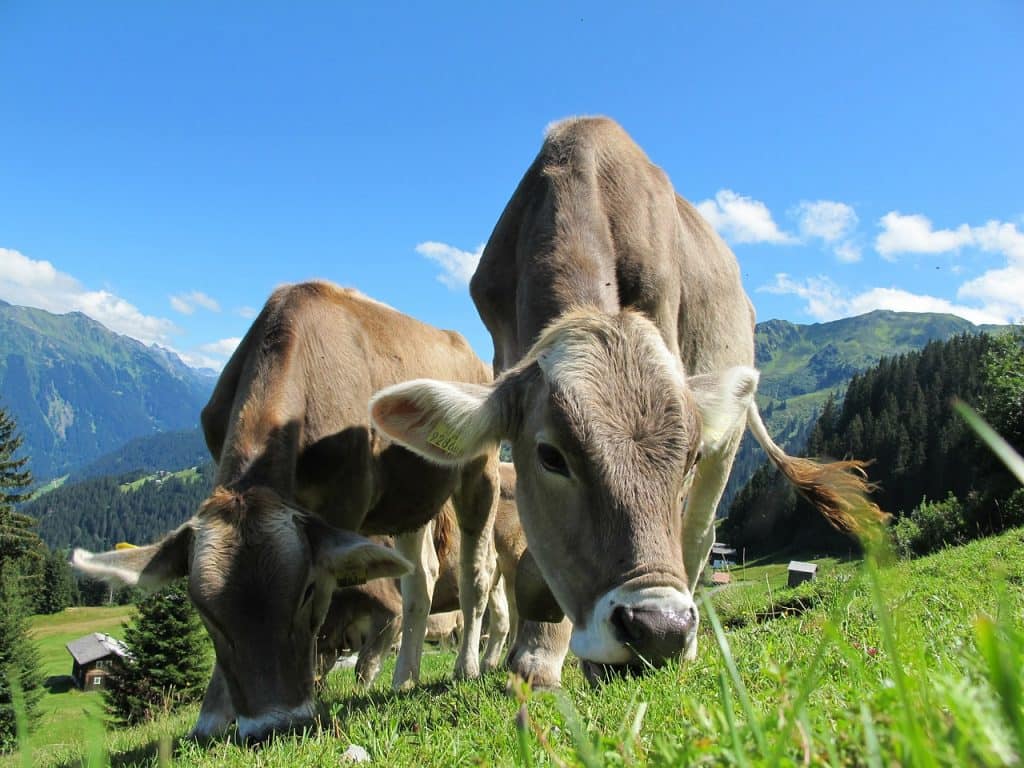
A prominent Harvard researcher in this area is Walter Willett, MD, Ph.D., and his research shows contrary evidence to the common idea that people need milk to be healthy.
Here are some of his thoughts on the USDA’s milk and meat advice:
“…the recommendation for three servings of milk per day is not justified and is likely to cause harm to some people…many studies have shown a relation between high milk intake and risk of fatal or metastatic prostate cancer.”
Dr. Mark Hyman also weighs in on the truth about dairy:
-
Milk or calcium doesn’t actually better bone health
-
Over 70% of the world is lactose intolerant
-
Milk doesn’t benefit performance
-
Dairy is linked to prostate cancer
-
Dairy is linked to heart disease
See Dr. Hyman’s article for more.
Eggs
The problem with eggs is primarily a nutritional and ethical dilemma. Let’s take a closer look.
Male and female chickens lead very different lives.
Since male chicks are unable to produce eggs and don’t grow large or fast enough for meat, they are “of no use” for the profitable farming system. For this reason, they’re ground up alive or killed in other ways shortly after birth.
For the females, they’re forced to molt through starvation in order to lay eggs quicker. Their bodies are treated like commodified products: after only one or two years of producing eggs, many of them are no longer useful for profit and are killed like the males.
Don’t be fooled: cage-free and organic eggs are no better.
Most of the cage-free hens aren’t kept in the tiny wire cages of conventional farms, but they’re still confined in a warehouse for their entire lives. They’re de-beaked, live in dangerous conditions, and literally never see the light of day.
As mentioned in this Vegan Rabbit article, “from a victim’s perspective, they’re exactly the same thing.”
What about the health concern of eating eggs?
Here are some of the health concerns with consuming eggs:
-
Almost 70% of the calories in eggs are from fat (mostly saturated)
-
They have zero dietary fiber
-
A normal-sized egg has 200mg of cholesterol
Seeing as the American Heart Association recommends a daily limit of 300mg of cholesterol, this leaves very little room for other cholesterol-containing foods through the day.Not to mention: cholesterol contributes nothing than cannot be gotten from other, easily available sources. Humans make all the cholesterol we need within our own bodies.
But hold up: this article by Huffington Post points out that eatings eggs, even daily, is not associated with cholesterol problems or heart disease.
Great news, right? Not so fast. What’s not discussed here is eggs’ disreputable history with cancer. This study from the World Health Organization concludes that the consumption of eggs is significantly and positively correlated with mortality from colon and rectal cancers.
Additionally, eating eggs is known to increase the risk of both prostate cancer (National Institutes of Health, 2011) and bladder cancer (International Urology and Nephrology, 2005).See this article from Forks Over Knives for a deeper look into the health troubles caused by eggs.
Fish
Similar to farm animal farming, fish farming is a commercial operation where fish are raised for food in confinement instead of being caught in the wild. Under these conditions, the fish develop infections, parasites, stress, and other diseases, which lead to them being fed antibiotics.No surprise – these antibiotics and illnesses are then transmitted to the humans who eat them.
In addition, fish absorb many of the toxic chemicals dumped into our water supply including DDT, toxic metals, and mercury.
Learn more about the toxicity of fish in Troubled Waters: The Case Against Eating Fish.
Even the majority of fish oils available as supplements don’t contain the number of nutrients advertised, as they become highly oxidized during processing. They’re very sensitive to heat, light, and oxygen.
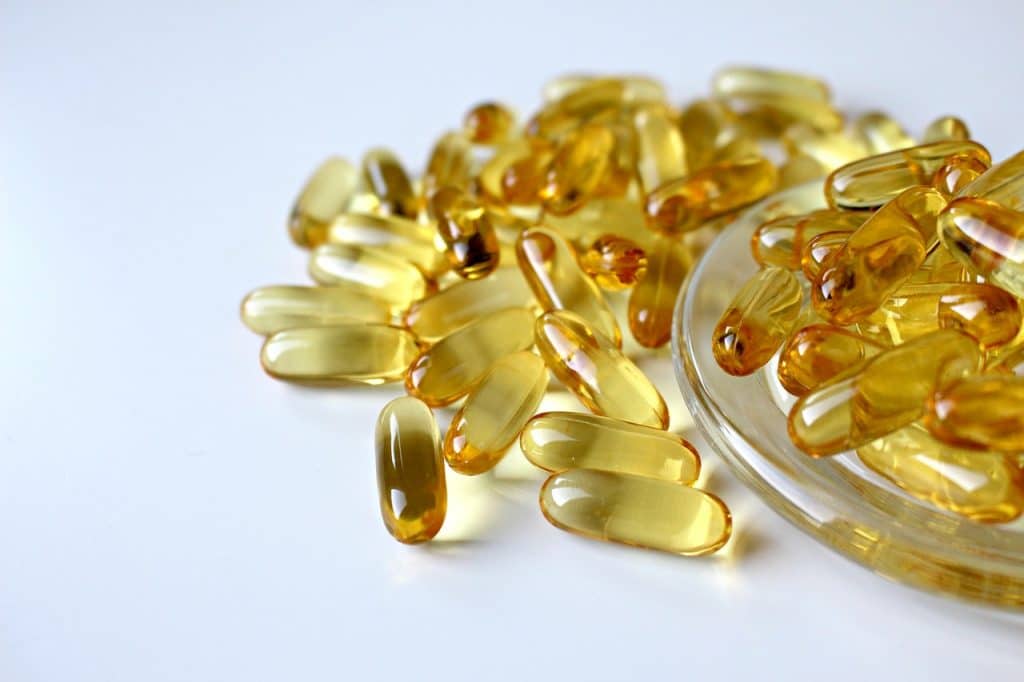
These are just the nutritional aspects. For a full roundup of why you should go vegan, including the sustainability, ethical, and health reasons, see our Ultimate Guide to Going Vegan: The Plant-Based Lifestyle
[Example] – What a week of eating whole foods looks like
Your health is your wealth!Ralph Smart
Enjoy our one-week meal of plan of pure vegan nutrition:
Day 1
Breakfast
Whole grain pancakes with strawberries blueberries, and honey
Lunch
Quinoa stir fry with veggies
Dinner
Burritos with beans, avocado, corn, cilantro, and lime
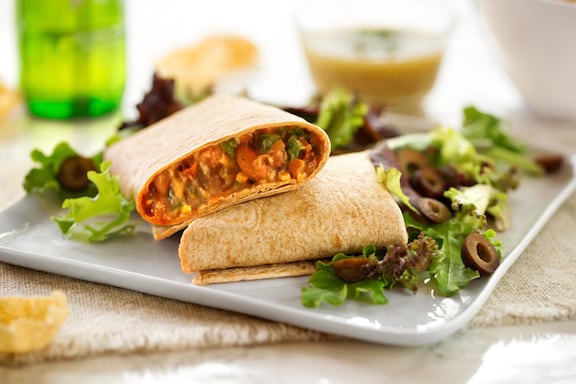
Day 2
Breakfast
Muesli with coconut or almond yogurt
Lunch
Spinach and kale salad with nuts, goji berries, and poppyseed dressing
Dinner
Noodles with peanut sauce and vegetables
Day 3
Breakfast
Whole grain toast with peanut butter, a variety of fresh fruit
Lunch
Couscous with roasted eggplant and pine nuts
Dinner
Vegan paella with bell peppers and chickpeas (recipe)
Day 4
Breakfast
Breakfast quinoa with coconut and cinnamon
Lunch
Spicy sweet potato salad with red peppers (here’s the recipe for this one)
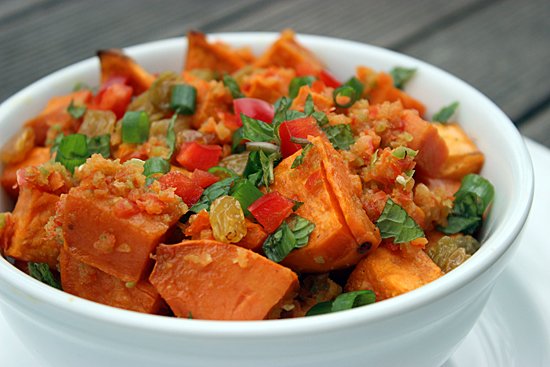
Dinner
Portobello mushroom burgers with garlic, oregano, and basil
Day 5
Breakfast
Oatmeal with flax, chia, almonds, and frozen fruit
Lunch
Vegetable and black bean, and vegan cheese quesadillas
Dinner
Slow cooker pumpkin curry (recipe)
Pair these meals with your daily multi vitamin and daily/weekly boost of B12 and you’ll be taking vegan nutrition to its fullest potential.
Closing Statements
As always, do your own research. One person’s nutritional overall requirements may be different from another’s, and it’s to your great benefit to do all the studying you can on the matter.
As you’ve learned in this article, it’s incredibly important to place a focus on the nutrition you’re getting from your food. Now you know what to look for when choosing foods, how to select supplements, and ideas for your first week’s meals.Now go out and enjoy the clean, wholesome, 100% vegan nutrition waiting for you!
Leave a Comment